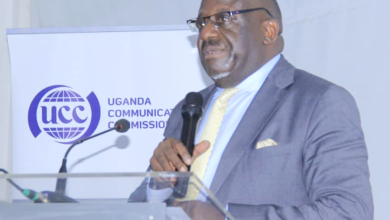LDC Rejects Proposed Parental Consent in Marriage

News
The provision, contained in Clause 5(d) of a newly tabled Bill, has raised concerns over potential violations of constitutional rights, particularly the right of adults to make independent marriage decisions.
The Law Development Centre (LDC) has firmly rejected a controversial proposal requiring couples seeking Christian marriages to obtain parental consent and undergo mandatory pre-marital counselling.
The provision, contained in Clause 5(d) of a newly tabled Bill, has raised concerns over potential violations of constitutional rights, particularly the right of adults to make independent marriage decisions.
In a statement issued on Monday, the LDC argued that the proposed clause infringes on the constitutional rights of individuals who have attained the age of majority, depriving them of autonomy in making personal decisions.
The LDC’s stance has garnered support from several prominent legal scholars, who warn that the clause conflicts with constitutional protections for individual freedom.
The Proposal: Clause 5(d) of the Bill
Clause 5(d), introduced by Hon. Opendi, Member of Parliament (MP) for Rubaga North, seeks to mandate parental consent for individuals under 21 entering Christian marriages.
Defending the proposal, Opendi argued that requiring parental involvement would promote responsible marital decisions, foster family unity, and protect young people from potentially harmful relationships.
However, the proposal has sparked significant opposition. Critics contend that the requirement violates the constitutional principle of adult autonomy, particularly Article 31(1) of Uganda’s Constitution, which presumes that men and women aged 18 and above are fully capable of making marriage decisions without external interference.
Constitutional Concerns
Legal experts, including prominent lawyer and scholar Mukiibi, have voiced strong objections to the provision.
“Requiring parental or guardian consent for individuals above 18 is a direct violation of their constitutional rights,” Mukiibi stated.
“Article 31(1) of the Constitution guarantees the right to freely choose a spouse, and this provision undermines that right by making it contingent on third-party approval.”
Mukiibi further pointed out that Uganda’s existing marriage laws already set the minimum age for marriage at 18, legally presuming individuals of this age to be capable of making their own decisions.
Introducing a parental consent requirement for those between 18 and 21 would, therefore, conflict with the established legal framework.
“The right to marry is a fundamental human right enshrined in the Constitution,” Mukiibi continued. “There is no legal justification for requiring external approval once an individual reaches adulthood.”
Potential Legal Challenges
The LDC has cautioned that the inclusion of Clause 5(d) could result in a range of legal challenges. Experts note that situations where parents are absent, estranged, or unwilling to provide consent are not uncommon, potentially creating significant legal barriers for young adults seeking to marry.
“This provision would create a legal quagmire, particularly for individuals who may have no contact with their parents or whose family situations are complicated,” remarked a legal analyst who requested anonymity.
“It’s simply unrealistic and discriminatory to assume every young adult has access to a supportive family structure that can provide consent.”
Despite the LDC’s objections, the proposal continues to polarize opinion in Uganda. Proponents argue that parental consent serves as an important safeguard to ensure young couples are adequately prepared for the challenges of marriage.
Supporters also believe the provision could prevent hasty or ill-considered decisions, particularly for young people still undergoing emotional and financial maturation.
Nevertheless, with growing opposition from legal experts, civil society groups, and the LDC, it remains uncertain whether the proposal will survive the legislative process.
Critics argue that the Bill, as currently written, could lead to legal and social complications, viewing it as a step backward in the evolution of Uganda’s marriage laws.
As the Bill progresses through Parliament, attention is expected to shift toward broader questions about adult autonomy, the role of families in personal decisions, and the interpretation of constitutional rights in contemporary Uganda.
The debate is likely to continue for weeks, with the possibility of further amendments or legal challenges on the horizon.
For now, the fundamental question remains: should the decision to marry, once an individual reaches adulthood, remain a personal choice—or should it be subject to parental approval?




